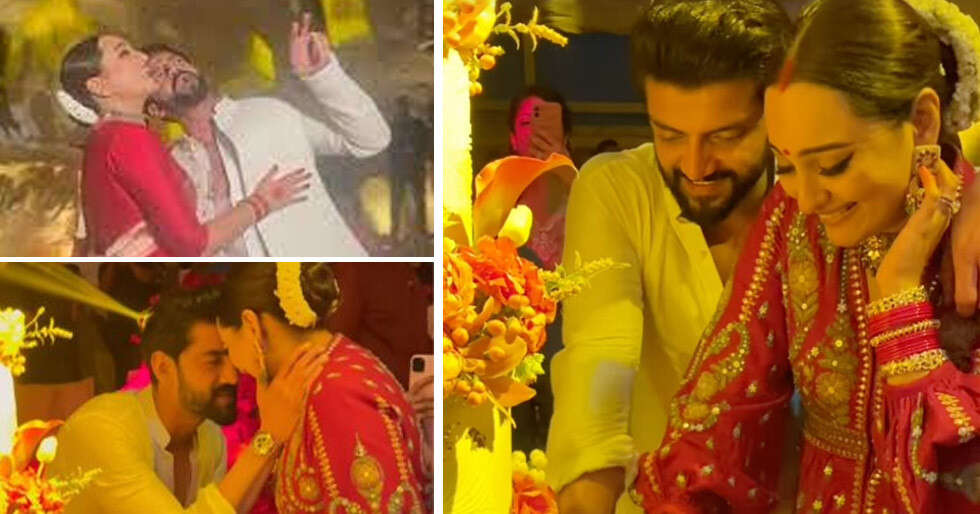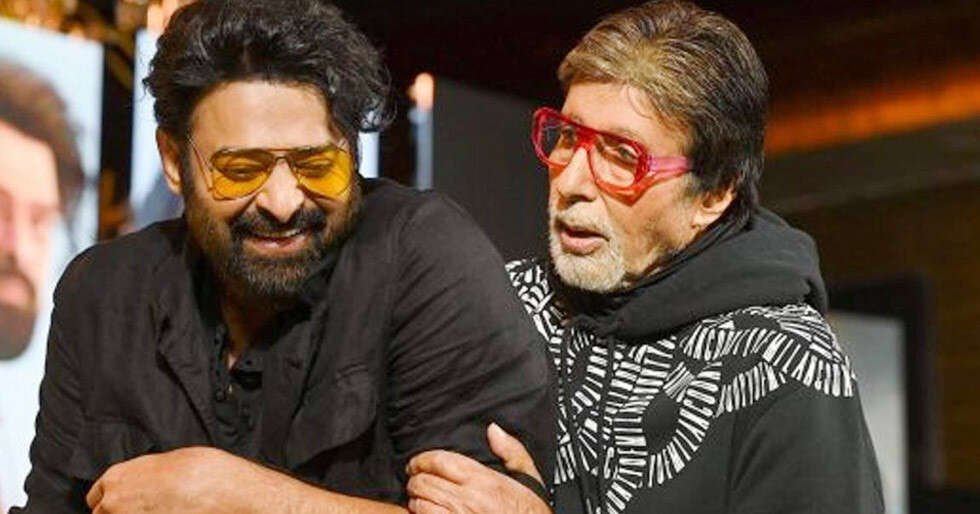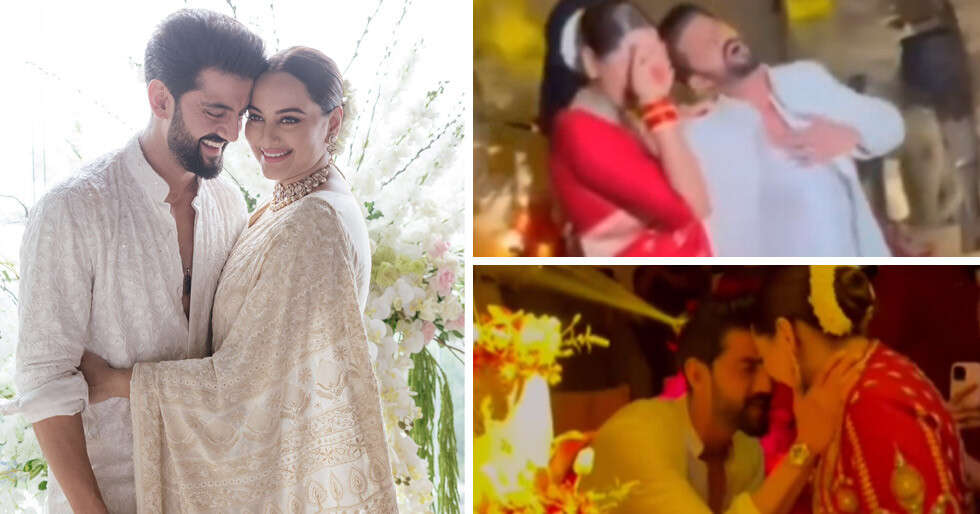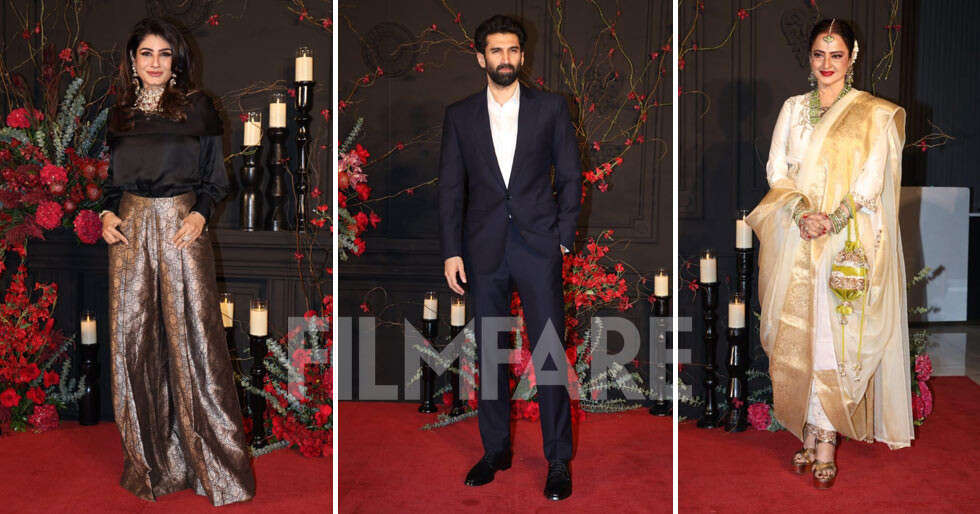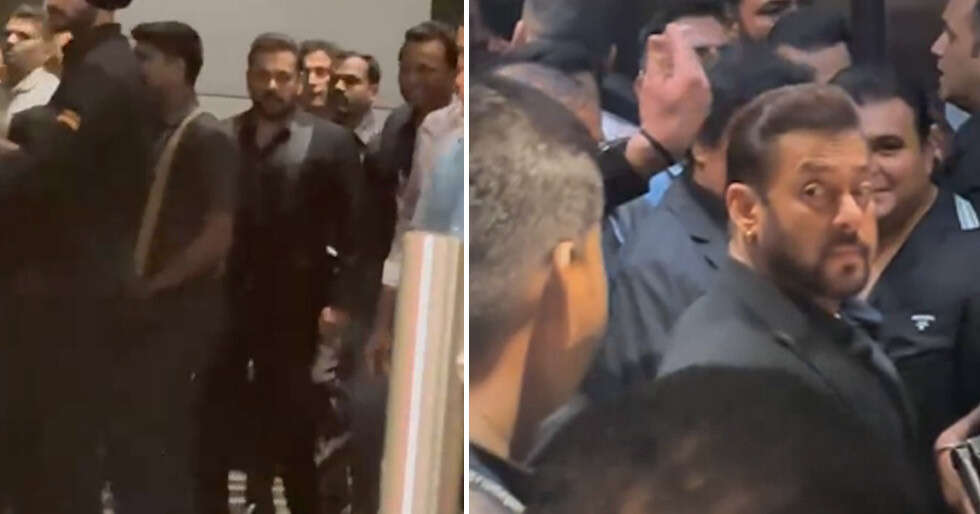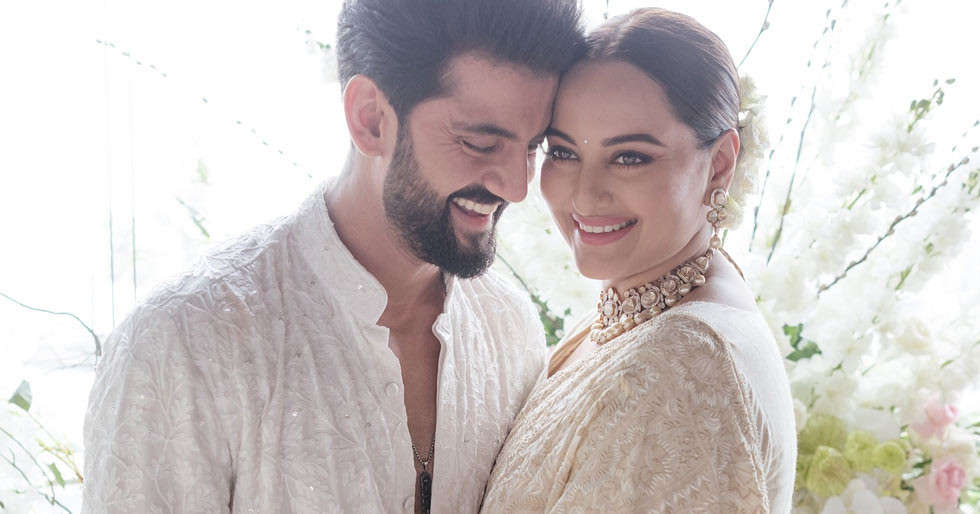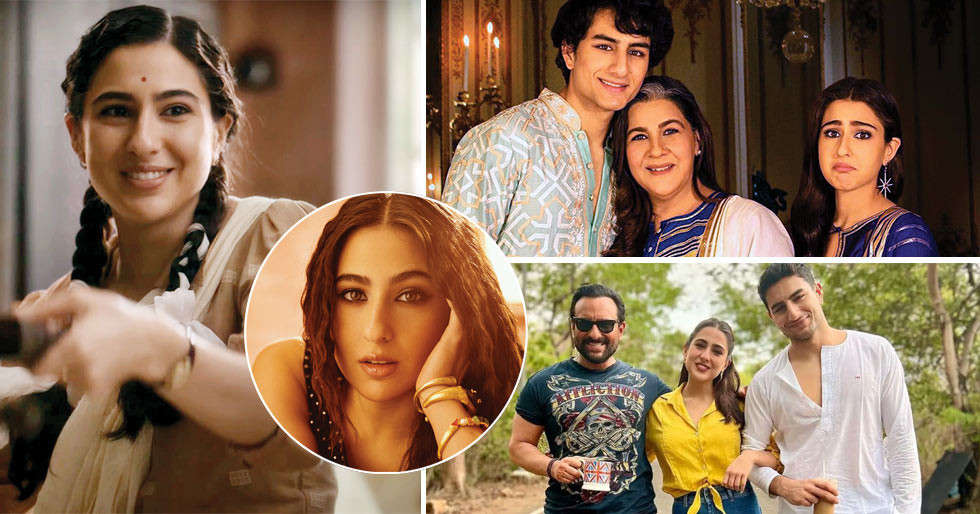
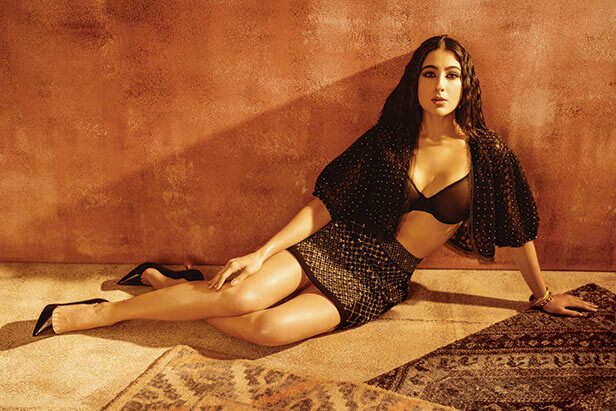
In a conversation with your grandmother, Sharmila Tagore, she spoke about how you go to her for advice. Tell us about your bond.
My grandmother is my only living grandparent. She is the voice of reason for all of us. And I think that when things get hard, which they did in my life in 2020, a period of time that was not very good for me, my daddy was there for me, all guns blazing. And she’s there for my mom and brother. Of course, she’s there for my father as well. She connects me to my traditional roots. She is also the voice of modernity. She also gives me good advice when it comes to boys, films, and social life. She’s a champion.
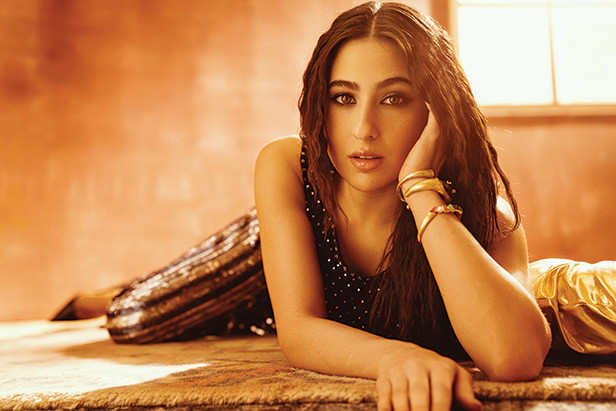
You come from a family of powerful actors. What is the conversation like about cinema when you all get together?
The most intriguing aspect is that we all come from different periods of time. As a result, each of our approaches differs. But, most importantly, we all take the time to express our gratitude to the universe and to one another for the opportunity to work in a profession we enjoy. This is not some 9-5 job. It helps you stay fit, active, expressive, creative, and alive.
What do you think is the perfect movie title to have your entire family in it?
(Laughs) To be honest, nothing beats Kabhi Khushi Kabhie Gham. It just sums up everything, and it suits us perfectly well.
How was it like to dabble in two such diverse genres as Murder Mubarak and Ae Watan Mere Watan?
It’s moments like this that force you to unlearn everything that you think you know, be totally present in that moment, and surrender to the director’s vision. Both Kannan Iyer and Homi Adjania are so astute that they know exactly what they want. They subscribe to different schools of filmmaking. Hence, there’s no real scope of overlap or confusion, like even the sound design is different. On the other end, we used to have a running joke because from wearing a white khaki saree in Ae Watan Mere Watan, I went to wearing bikinis in Murder Mubarak. And Homi was like, where do I set the mike, because it’s so easy in a saree. Jokes aside, there was no moment where I had to ask which set I was on. In Ae Watan Mere Watan, the world is so different. It’s pre-independence, death penalty, advent of radio, celibacy, struggle, strife, protests, Quit India Movement, Ram Manohar Lohia, Gandhiji—these are all larger than life. You can’t imagine it, so I think you need to be fully present in that moment. Surrender totally to the director and everything you thought you knew. And just delve in and try to do justice to the sacrifices made not just by Usha Mehta but to the thousands of unknown and unsung freedom fighters. It’s because of them that we can sit here and enjoy the privileges of democracy. You have to respect that to bring that sort of gravitas in your performance, as you’re representing something crucial, something bigger than yourself.
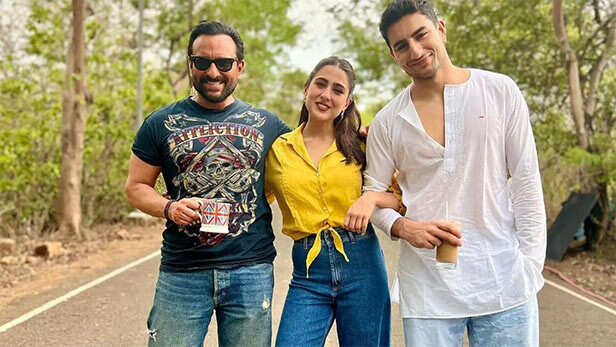
Was there any particular scene from Ae Watan Mere Watan that you found emotionally taxing?
It was emotionally draining at times. The kind of character that I’m playing in this film is so distinct from anything that I have played before. She embodies so much confidence and self-pride. There’s a sense of self-awareness. Usha Mehta was someone else indeed. To have so much courage and conviction at such a young age is so empowering. In the midst of finding her, I found myself. She felt totally relatable. Her inner resolve, her confidence was to be admired and as the film progressed, I began to appreciate what she has done, what her sacrifice stood for. We could only mimic her actions and her circumstances and hope that we were getting everything right. One could only imagine the stress the freedom fighters worked under as even doing it for the camera was exhausting and preyed on our nerves.
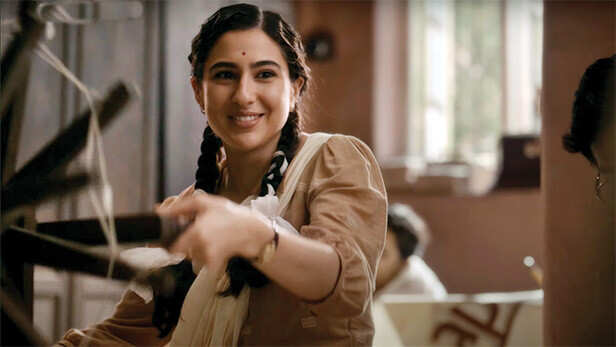
Tell us a little more about that common thread you felt between Usha Mehta and you.
There’s a font of strength, conviction and courage within us that we seldom draw upon. That’s what I learnt while essaying her. That you have to look within you and seek fortitude. Of course, I’m a mere actress and have been brought up in privilege. She was a freedom fighter who lived through the turbulent era of the Quit India Movement and did service for her country. So there’s no comparison between us per se. What I can relate to is her do or die spirit. What I’ve learnt so far in my career is that you have to raise the bar every time you feel low. You have to give your best every time and be a better actor, a better person, with every offering. Her inner resilience was something I could relate to. And did my utmost to uphold her ideals while essaying her on screen.
Actors find it hard to adapt to a multi-star setup but you did it seamlessly in Murder Mubarak. How do the dynamics work?
If you’re confident about your craft and you are doing the film for the right reason, then there’s not much to worry about regarding your screen time or other stars taking away the limelight. I did Murder Mubarak because it’s an extremely new, fresh murder mystery. It goes beyond the generic whodunit films. Homi has created an interesting and exciting world that is different from anything you’ve seen before. And I’ve always believed that an actor’s real competition is with herself. So, I didn’t feel insecure at all doing the film. And as I said before, I trusted my director’s vision completely. It all went smoothly and I had a whale of a time on the sets.
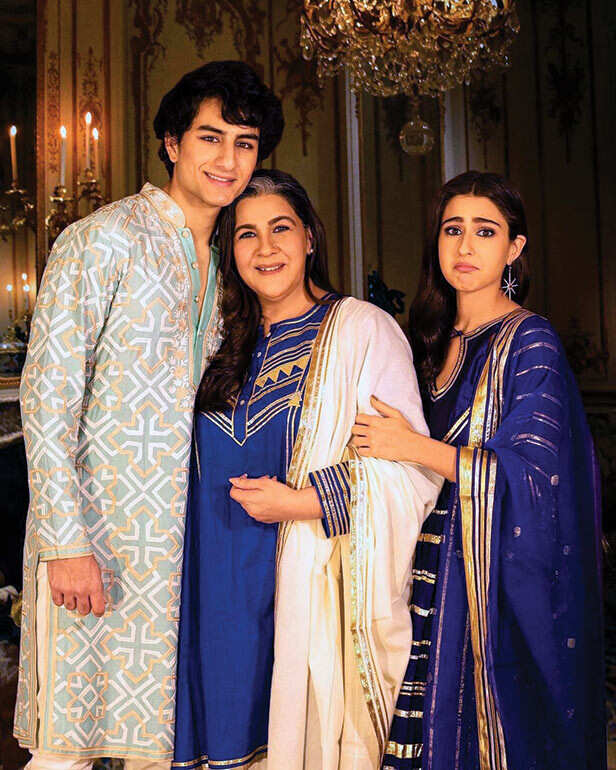
You’ve always had social media constantly questioning everything you do. There have been a few box office failures too. What have these five years taught you about how to deal with them?
I think you have to have an inner conviction because everybody is going to try to drag you down, especially if you give them the opportunity to. First, just be grateful. Practising gratitude helps because it could always be worse than it is. Like I just scalded my stomach the day before yesterday. And it could have been my face. So it’s always about the way you look at things. Even if I’m being trolled, for instance, I tell myself that at least they’re talking about me. Imagine being irrelevant. For an actor, that’s death. So always look at it in such a way that you can tell yourself it could have been worse. And always remind yourself that, ultimately, you are in charge of your life. So if you want to do better, you just have to be there and try harder.
One word of advice for Sara of Kedarnath?
You’re the purest you’ll ever be. Retain it and never lose out on it. It will take you further than anything that you try, and the journey is worth it.
Next Story
Source Powered by Yes Mom Hosting


